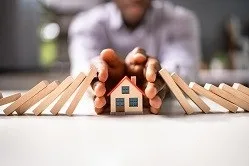Home emergencies can strike at any time, catching us off guard and testing our ability to respond swiftly and effectively. Whether it’s a burst pipe, a power outage, or a sudden appliance malfunction, being prepared to tackle these situations can make all the difference in minimizing damage and ensuring the safety of your household. In this comprehensive guide, we’ll explore key steps to respond effectively to a range of home emergencies.
Establish Emergency Contacts
Have a list of emergency contacts readily accessible. Include numbers for local emergency services, your utility providers, and trusted professionals like plumbers, electricians, and contractors. Having this information at your fingertips ensures that you can quickly get help when you need it.
Power Outages
If you experience a power outage, check if it’s a localized issue or affecting the entire neighborhood. Report the outage to your utility provider and, if possible, use flashlights instead of candles to avoid fire hazards. Keep essential devices charged and consider having a backup power source like a generator for prolonged outages.
Water Leaks and Burst Pipes
Water leaks and burst pipes can cause significant damage if not addressed promptly. Shut off the water supply to the affected area or the entire house if necessary. Locate and turn off the main water valve. Contact a plumber such as beehiveplumbing.com immediately to assess and repair the issue. In the meantime, use towels or buckets to contain and remove excess water.
Gas Leaks
Gas leaks pose a serious threat and require immediate action. If you smell gas or suspect a leak, evacuate the premises immediately. Don’t use any electronic devices or turn on any lights. Once you’re at a safe distance, call the gas company’s emergency line from the cheapest gas company in georgia to report the leak. Avoid re-entering your home until it has been declared safe by professionals.
Fire Emergencies
In case of a fire, prioritize your safety and the safety of others. Follow established evacuation routes and use fire extinguishers if it’s safe to do so. Call emergency services and alert your neighbors. Have a designated meeting point outside the home where everyone can gather to ensure that everyone is accounted for.
Appliance Malfunctions
If an appliance malfunctions, such as a malfunctioning oven or a smoking microwave, immediately unplug the device and assess the situation. If you can do so safely, move the appliance away from flammable materials. If the situation escalates, use a fire extinguisher and call the emergency services. Always follow manufacturer guidelines for appliance use and maintenance.
Natural Disasters
For natural disasters like earthquakes, hurricanes, or tornadoes, familiarize yourself with emergency protocols and evacuation routes. Have an emergency kit prepared with essentials like water, non-perishable food, first aid supplies, and important documents. Stay informed through weather updates and follow the guidance issued by local authorities.
Document the Emergency
After the immediate threat has been addressed, document the emergency. Take photos of any damage or areas affected. This documentation can be valuable when filing insurance claims or when seeking professional assistance for repairs and restoration.
In conclusion, effective response to home emergencies requires a combination of preparedness, quick thinking, and the ability to remain calm under pressure. By staying informed, having emergency contacts at the ready, and following these steps, you can navigate unexpected situations with confidence and safeguard your home and your loved ones from potential harm. Remember, being proactive in preparing for emergencies today ensures a safer and more secure home tomorrow.





